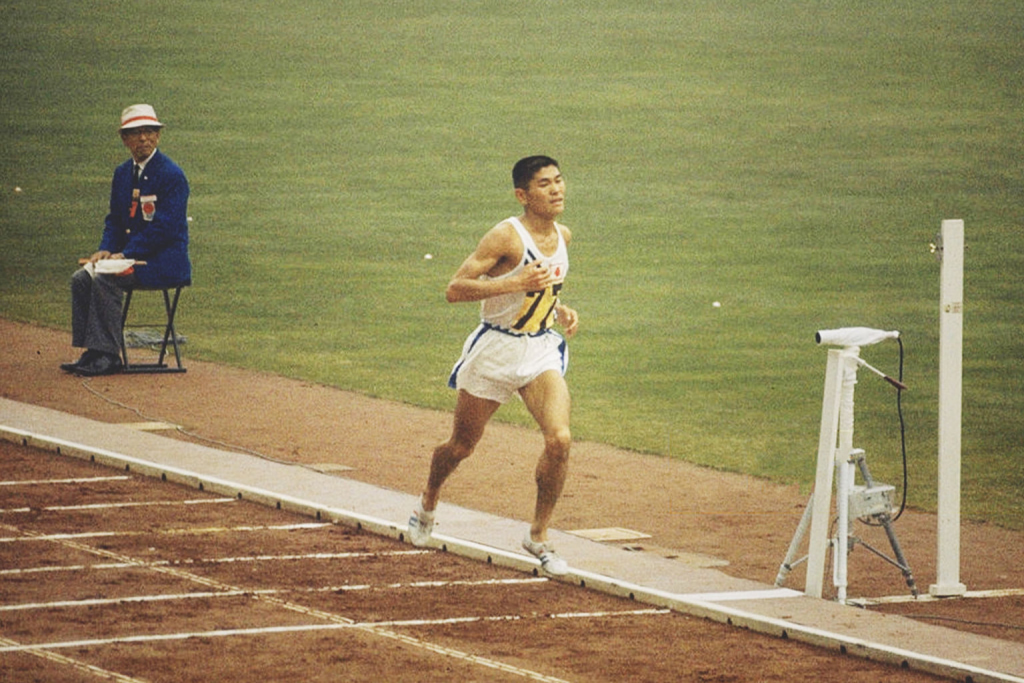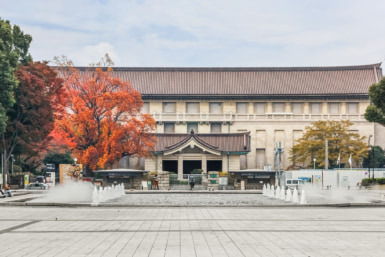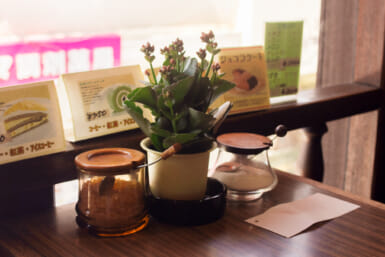It should have been the greatest day of his life. On October 21, 1964, the final day of the Tokyo Olympics, Kokichi Tsuburaya won a bronze medal in the marathon. In doing so, the Fukushima Prefecture-native became the first Japanese track and field athlete to claim a medal in the postwar era. What’s more, he did it in front of a passionate home crowd at the National Stadium.
Yet, instead of celebrating the feat, Tsuburaya lamented the fact that he couldn’t hold on to second place. Describing it as an “inexcusable blunder in front of the Japanese people,” he vowed to put things right in Mexico City four years later. Unfortunately, injuries took their toll and his prospects didn’t look good. His engagement to the love of his life also fell through. On January 9, 1968, nine months before the start of the Olympics, Tsuburaya tragically took his own life. The then 27-year-old was found dead in his dorm room holding on to his bronze medal.
Background
Tsuburaya was born in Sukagawa City, Fukushima Prefecture, on May 13, 1940. One of seven children, he followed in his brother’s footsteps by taking up running at high school. This was despite the fact that he suffered from tuberculous arthritis in his legs as a child. He went on to join the Japan Self-Defense Forces (SDF) where he gained a reputation for his track and field performances, particularly in the (multi-stage) Ekiden races. Pushing himself too hard, though, he had trouble with his lower back that would get worse over time.
In the early 1960s, the SDF set up a physical training school with the aim of recruiting potential members for the Olympics. Tsuburaya was initially overlooked due to his back injury, but his obvious talent meant they couldn’t ignore him for long. He excelled in the 5,000m and 10,000m races and was eventually selected to represent his country in the latter at the 1964 Games.
Mikio Oda, Japan’s first-ever Olympic gold medalist and, at the time, head of the JAAF, felt the long-distance runner also had the potential to do great things in the marathon. Tsuburaya subsequently made his debut in the 42km-race in March of 1964, seven months before the start of the Tokyo Games. A respectable fifth-place finish in a time of 2:23:31 encouraged him to enter the Mainichi Marathon, a qualifying race for the Olympics, which took place the following month. He finished second which was good enough to book a spot as one of Japan’s three representatives in the race.
https://www.youtube.com/watch?v=GRoOxs3BoHM
1964 Tokyo Games
Tsuburaya exceeded expectations at the Games. In the 10,000 meters he finished sixth in a strong field. Victory went to America’s Bob Mills in what was one of the biggest upsets in Olympic history. In the final stretch, Tunisia’s Mohammed Gammoudi looked to be edging out pre-race favorite Ron Clarke from Australia for the gold until Mills came from nowhere. “Look at Mills, look at Mills,” was Dick Bank’s legendary commentary that got him fired by NBC. Tsuburaya ended the race 35 seconds behind the winner.
Due to his lack of experience, Tsuburaya was seen as the weakest of Japan’s three runners in the marathon. However, with seven kilometers left, Ireland’s James Hogan dropped out leaving the Sukagawa-native in second place. He held that position going into the stadium. The Ethiopian great Abebe Bikila had already sewn up his second consecutive gold medal and Tsuburaya was on course to be runner-up. Then, with around 200 meters to go, Britain’s Basil Heatley surprised everyone by sprinting past him. The Japanese man had to settle for a bronze. His frustration was obvious despite becoming the first Japanese person to medal in the marathon (Korean runner Sohn Kee-chung won gold while running under the colonial rule of the Japanese Empire in 1936).
“I thought he had the silver medal won when he entered the stadium,” says Tokyo Junkie author Robert Whiting. “So did everyone else. The TV announcer was very excited. Tsuburaya was several meters ahead of Heatley. But the British man put on a great kick to finish ahead of him. It seemed like Tsuburaya had run out of gas. You could feel the air go out of the coffee shop where I was watching the race. Everyone was so disappointed. It was like a morgue.”
Injuries and Heartbreak
“I have to make amends by running and hoisting the Hinomaru in the next Olympics in Mexico,” said Tsuburaya. Sadly, he never got the chance. His preparations were hampered by a series of misfortunes including a slipped disc, lumbago and an Achilles tendon injury that required surgery.
Away from the track, he continued to serve as a member of the SDF. He was also engaged to be married to a lady named Eiko. A high-ranking official, however, informed him that any wedding nuptials would have to wait until after the 1968 Games. Tsuburaya’s coach protested the decision and was subsequently demoted and told he could no longer train the runner.
The postponement concerned the parents of his fiancé and they decided to call off the engagement. She went on to marry another man, which Tsuburaya found out about when visiting his family for the New Year holidays at the end of 1967. Returning to the SDF base, the Olympic bronze-medalist’s body was then discovered in his dormitory room a week later. He had slit his wrists. Beside him were two suicide notes. One was addressed to his family. It has been translated on Roy Tomizawa’s The Olympians webpage.
“Your Kokichi is too Tired to Run Anymore”
“My dear father, my dear mother, I enjoyed the delicious three-day tororo soup, the dried persimmons and the rice cakes. My dear brother Toshio and my dear sister, I enjoyed the delicious sushi. My dear brother Katsumi and my dear sister, I enjoyed the delicious wine and apples. My dear brother Iwao and my dear sister, I enjoyed the delicious shiso herbal rice and the nanban zuke pickles.
My dear brother Kikuzo and my dear sister, I enjoyed the delicious grape juice and Yomeishu wine. I enjoyed them. And thank you, my dear sister, for the laundry you always did for me. My dear brother Kozo and my dear sister, I thank you for the rides you gave me in your car, to and fro. I enjoyed the delicious mongo-cuttlefish. My dear brother Masao and my dear sister, I’m very sorry for all the worries I caused you.
Sachio-kun, Hideo-kun, Mikio-kun, Toshiko-chan, Hideko-chan, Ryosuke-kun, Takahisa-kun, Miyoko-chan, Yukie-chan, Mitsue-chan, Akira-kun, Yoshiyuki-kun, Keiko-chan, Koei-kun, Yu-chan, Kii-chan, Shoji-kun: May you grow up to be fine people. My dear father and my dear mother, your Kokichi is too tired to run anymore. Please forgive him. He’s sorry to have worried you all the time. My dear father and mother, Kokichi would have liked to have lived by your side.”
Today, the mental well-being of athletes is taken more seriously. In the 1960s, little, if any support was available. It’s clear from his writing, which was praised by esteemed authors such as Yasunari Kawabata and Kenzaburo Oe, that Tsuburaya had a close-knit family, but at the end he must have felt so alone. His death remains the biggest source of pain in Japan’s sporting history.
If you or someone you know needs mental health support or someone to talk to, please visit telljp.com and www.imhpj.org









